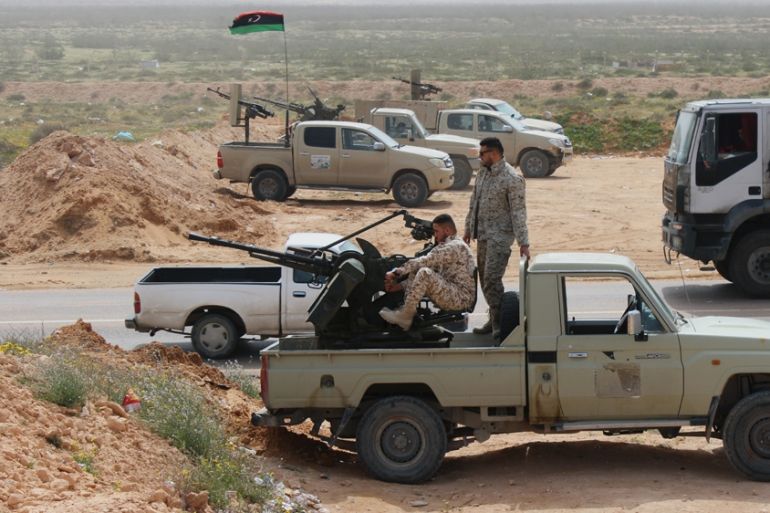UN’s top Libya envoy Ghassan Salame opposes UN troop deployment
Special envoy says transformation of current truce into permanent ceasefire needs small number of military observers.

The United Nations special envoy for Libya has opposed the deployment of UN peacekeepers to the war-torn country, saying that “there is no acceptance for foreign troops in Libya.”
“I also don’t see the readiness to send troops in the international community. I am, therefore, not aiming for such a military operation,” Ghassan Salame told Germany‘s Die Welt newspaper on Tuesday.
Keep reading
list of 3 itemsWhat’s happening with the war in Libya? | Start Here
Libya’s youth suffer from war and lack of opportunities
Instead, Salame said it was much more important to transform the current fragile truce into a permanent ceasefire which he said required a small number of military observers rather than UN troops.
On Sunday, world leaders agreed at a conference in Berlin to set up a so-called “International Follow-Up Committee” (IFC), which seeks to implement the goals of the summit, namely to secure a lasting ceasefire and implement a UN arms embargo that has been largely ignored for almost a decade.
A number of European figures, including British Prime Minister Boris Johnson, German Defence Minister Annegret Kramp-Karrenbauer, and European Union foreign policy chief Joseph Borrell, further suggested the possibility of deploying peacekeeping troops to Libya if a permanent ceasefire were agreed, though this was not part of the discussions.
The committee is scheduled to meet for the first time in the German capital in mid-February.
Battleground
Libya has been in turmoil since the 2011 overthrow of longtime leader Muammar Gaddafi and has become a battleground for rival proxy forces.
The deeply divided country currently has two rival administrations: The UN-recognised Government of National Accord (GNA) in Tripoli and another allied with renegade military commander Khalifa Haftar in the east.
The country’s embattled Prime Minister Fayez al-Sarraj enjoys UN backing and a Turkish military presence, but has struggled to assert his authority beyond Tripoli.
Haftar has the support of Egypt, the United Arab Emirates and Russia. His self-styled Libyan National Army controls vast swaths of territory in the oil-rich North African country.
In April, Haftar’s forces launched an offensive to seize Tripoli, with clashes so far killing more than 280 civilians and 2,000 fighters and displacing tens of thousands.
On January 12, a fragile ceasefire backed by both Turkey and Russia was put into place.